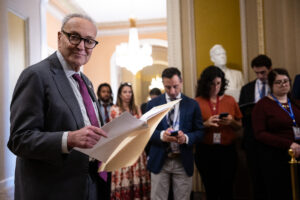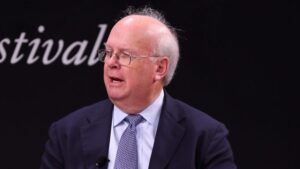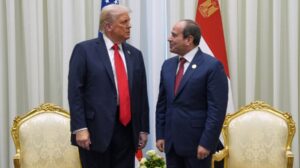The Dictatorship
Trump’s peace plan comes with some major sticking points
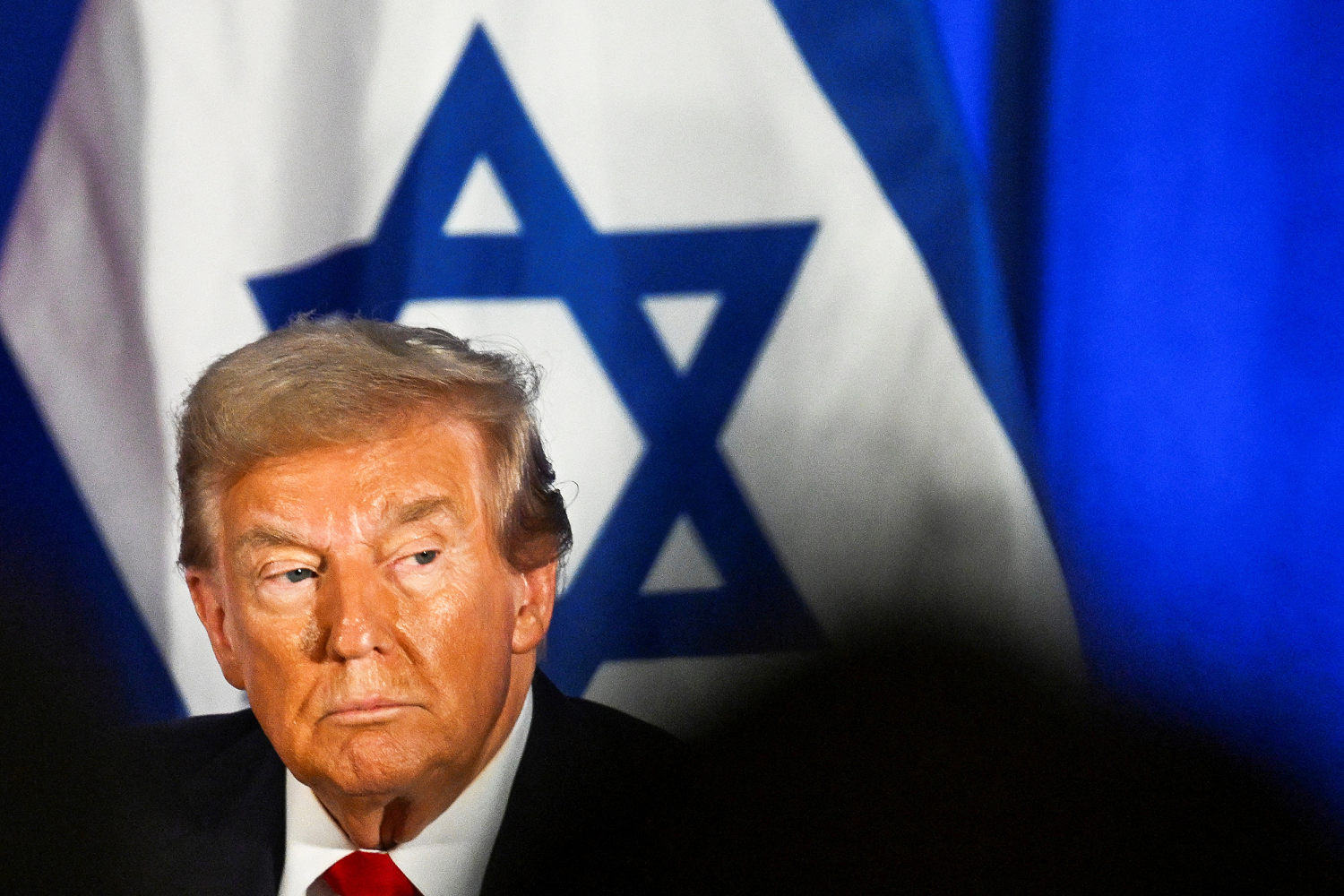
Israel and Hamas may have agreed to the first phase of President Donald Trump’s peace plan, but major hurdles remain to permanently end the hostilities that have caused chaos, death and devastation for more than two years in the region.
Several elements of the president’s multipronged road map conflict with Hamas’ interests, including a call for the U.S.-designated terrorist group to disarm and for Gaza to be temporarily governed by a Trump-led council of nations. There’s also questions about the structure and logistics of an international peacekeeping force that would be deployed to Gaza.
“We have to be careful to constantly sort out what has been achieved,” former U.S. deputy national security adviser Ben Rhodes told BLN.
He added that there were “key areas of differences” between the two parties.
“If those are not addressed, we could be sitting here in a couple of months with Israeli military operations resumed in the Gaza Strip,” Rhodes said.

The initial step of Trump’s 20-point blueprint — a hostage-and-prisoner exchange set to begin early next week — comes with its own challenges. Prime Minister Benjamin Netanyahu’s government finalized a list of Palestinian prisoners set to be released, which could include individuals accused of orchestrating major terrorist attacks. That’s a significant point of political tension in Israel.
Lianne Pollak-David, a former adviser to Netanyahu who served as a negotiator to Israel’s Palestinian counterparts, noted that Hamas has a history of playing “tricks” in past hostage releases, including sending the wrong dead body to relatives. “If something of that sort goes wrong, that could blow up the whole thing, the whole deal,” she said.
But Trump’s expected travel to the Middle East on Sunday, with visits to Israel and Egypt, could put pressure on both sides to uphold their ends of the bargain. A stop in Gaza was initially considered, but ultimately ruled out, said a White House official, who stressed that the president’s travel plans remain fluid and subject to change. Trump’s presence in the region, shortly before hostages are expected to be released, “brings a certain gravitas to the process,” Pollak-David said.
Here’s a deeper look at some of the key sticking points to watch in the White House’s peace plan:
Disarmament of Hamas
Leaders of Hamas have previously said they would be unwilling to disarm during the course of negotiations with meditators that have stretched on for more than a year. However, a senior U.S. administration official downplayed concerns about disarmament, arguing that private communications don’t match up with those public statements.
Hugh Lovatt, an analyst at the European Council on Foreign Relations, believes members of the political wing of Hamas — who are mostly based in Qatar — are open to surrendering offensive weapons. Such actions could include destroying missiles, production facilities and underground attack tunnels.
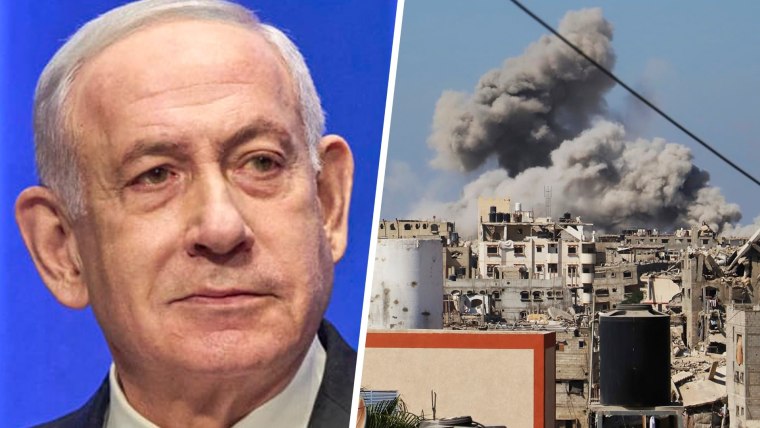
“Hamas has stuck quite hard to many of its red lines, but on the question of decommissioning, to use their words, that is something where there has been the most notable shifts,” Lovatt said.
But Lovatt also stressed that much is still unknown in terms of implementation.
‘Board of Peace’
Governance of Gaza remains a complex and politically charged issue. Israel is opposed to a governing structure that consists of only Palestinians, while Palestinians are ultimately looking for self-determination.
In Trump’s proposal, the administration describes a temporary apolitical committee of “qualified Palestinians and international experts.” A council of foreign leaders — one that includes former British prime minister Tony Blair and is chaired by Trump — would then oversee the committee.
Trump’s role at the helm, according to Lovatt, is seen as a positive by some Arab countries, suggesting that the White House has a longer-term stake in remaining involved in the process.
“The idea of an international oversight committee is a way of trying to square that circle between Israeli demands and Palestinian expectations,” Lovatt said. “If the board has sweeping powers over Gaza’s legislation, judiciary, real estate, then that’s a problem. If it’s more of a supervisory capacity, then that’s much more in line with Palestinian demands.”
International Stabilization Force
U.S. Central Command — more colloquially known as CENTCOM — is leading a joint task force of armed forces from various countries, including up to 200 American personnel who will be responsible for ensuring that phase one is completed without violations of the agreement.
Egypt, Qatar, Turkey and the United Arab Emirates also would provide armed forces to be embedded in the group. It’s possible some of those U.S. personnel could be on the ground in Israel, according to a White House official. But the personnel are not “intended” to enter Gaza, another official said.
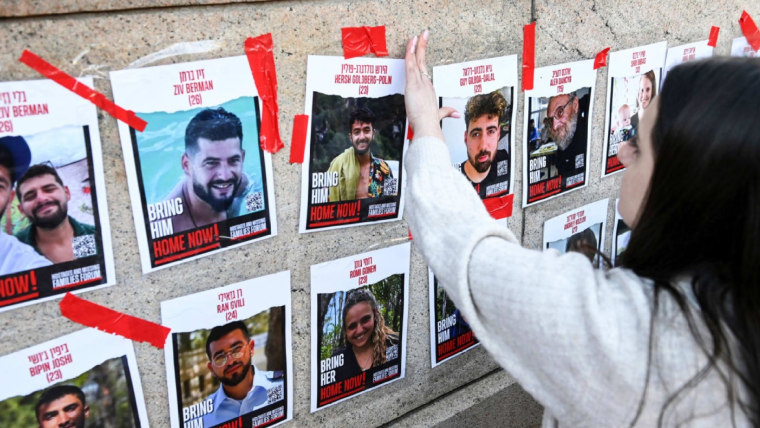
Ultimately, Trump’s framework aims for an international peacekeeping force to be established to replace Israel’s troops in Gaza. Discussions continue with multiple governments on the force’s creation, according to senior administration officials.
Those talks could address open questions about funding and the logistics of the force. But a well-defined mandate of the force remains a bigger question. And whether the force would simply be involved in deconfliction, or whether counterterrorism and intelligence efforts also would be part of the force’s mission, remains to be seen.
Lovatt said the risk is that any international force gets stuck in Gaza without a clear timeline for a two-state solution. That lack of clarity, Lovatt added, is perhaps the most significant challenge ahead for all parties involved.
“The U.S. effort is not really dealing with the root causes, which is Israeli political, public opposition to a two-state solution” and “a very dysfunctional Palestinian political landscape,” Lovatt said.
“At best case, it’s a stepping-stone or two towards that,” he said.
Akayla Gardner is a White House correspondent for BLN.
The Dictatorship
The two words Democrats are avoiding in praising the Israel-Hamas peace deal
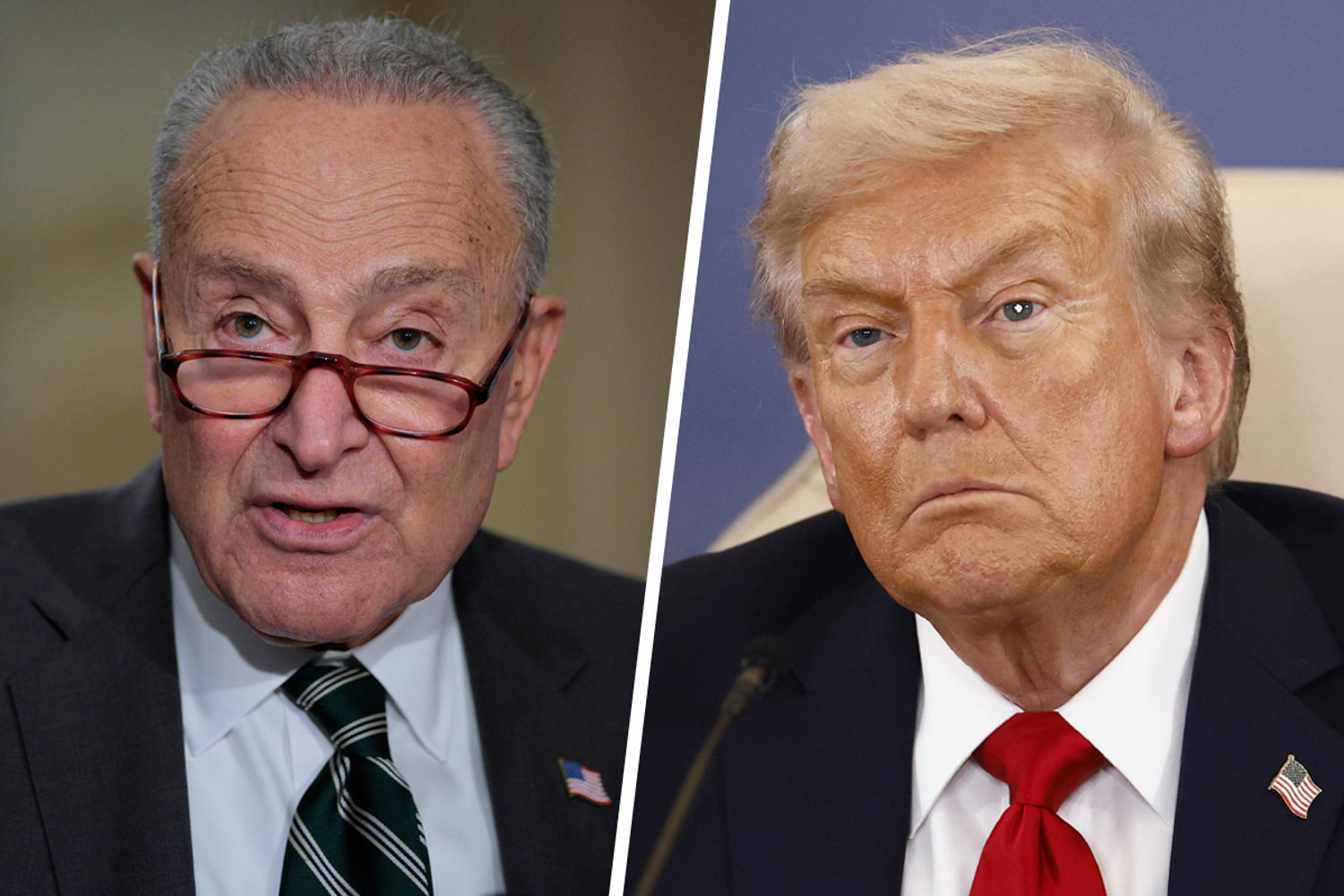
Democrats are heaping praise on the peace deal struck between Israel and Hamas, which unlocked the release of all living hostages in Gaza. But there are two words most Democrats are omitting when discussing the peace agreement: “Donald” and “Trump.”
In statement after statement, Democrats on Capitol Hill lauded the end to the fighting, the liberation of hostages and the hope of a new chapter in the Middle East, applauding “all involved in succeeding to broker the ceasefire agreement” and touting the “power of diplomacy” for getting the globe to that moment.
“After two years of abduction and torture, every living hostage is finally home. Those who were taken on October 7th will outlast the terrorist organization that tore them from their families and homes and unleashed a war of untold suffering,” Rep. Ritchie Torres, D-N.Y., wrote on social media. “Against all odds, the timeless call to ‘Let My People Go’ has been answered.”
Notably, however, there was no mention of Trump.
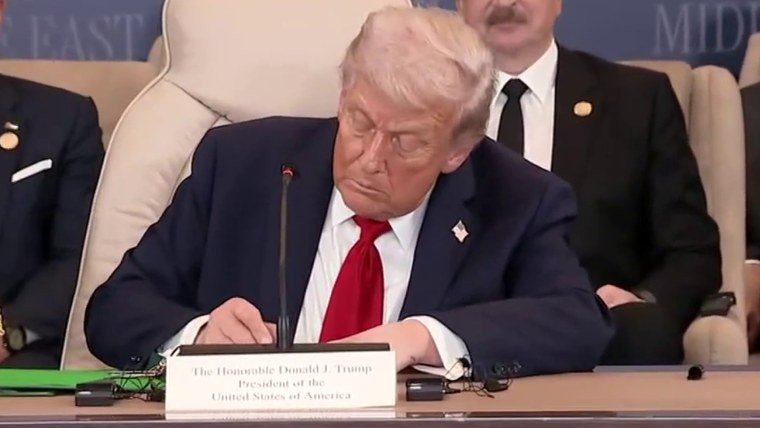
The same could be said for Minority Leader Hakeem Jeffries, D-N.Y.
Jeffries called the agreement “an extremely welcome development.”
“The world will be a better place with a safe and secure Israel living side by side in peace and prosperity with the Palestinian people able to achieve the dignity and self-determination they deserve. We must all recommit to achieve that outcome,” Jeffries said.
Senate Minority Leader Chuck Schumer, D-N.Y., eventually gave Trump a shout-out Monday afternoon, after ignoring the president’s role when the deal was first announced.
In a 175-word statement, Schumer commended “the enormous advocacy of the tireless hostage families, President Trump, his administration, and all who helped make this moment happen.”
While he didn’t necessarily avoid Trump, he was careful to bookend his praise within a statement that celebrated the living hostages coming home and a call to build a lasting peace in the region.
And the ranking Democrat on the House Foreign Affairs Committee, Rep. Gregory Meeks, D-N.Y., posted on X that he was “deeply relieved to see the living hostages released from Gaza today.”
“May their freedom mark a process of healing for them and their families, and the beginning of a durable peace for both Israelis and Palestinians,” Meeks said.
There was no mention of Trump.
The divide between celebrating the deal while ignoring the man who helped broker it highlights the politically tricky terrain Democrats find themselves in. They want to laud the potentially historic peace agreement without giving credit to Trump, a figure they and their voters largely loathe and whose actions throughout the war have drawn criticism.
It’s the latest flashpoint in the long-simmering debate within the Democratic Party over Israel, which has pitted pro-Israel Democrats against progressive lawmakers who sharply criticized the treatment of Palestinians in Gaza — a discourse that has played out publicly.
Republicans, for their part, are taking note of the lopsided reaction. On Monday, Speaker Mike Johnson, R-La., criticized Democrats for not explicitly giving Trump “any credit,” accusing them of being fearful of the blowback from their base.
“They’re afraid, again, as I said in the press conference, of their Marxist base,” Johnson told reporters. “They’re afraid of the radical left, the growing number of radical leftists in the Democrat Party who will attack them if they say anything positive or affirmative about President Trump and his work, and it is a great shame and a great danger to the country.”
The speaker noted that he was “heartened” by the comments of some Democrats, including former Secretary of State Hillary Clinton — Trump’s rival from the 2016 election. In an appearance Friday on CBS News, Clinton said, “I really commend President Trump and his administration, as well as Arab leaders in the region for making the commitment to the 20-point plan and seeing a path forward for what’s often called the day after.”
Of course, some congressional Democrats have joined Clinton in calling out the president.
Sen. Jon Ossoff — who faces a tough re-election next year in Georgia — praised the White House. “I commend the efforts of the Trump Administration and international partners to achieve this moment and will vigorously support the hard work ahead necessary to secure peace, security, and freedom for all people in the Middle East,” he wrote in a statement.

In a post on social media, Rep. Jared Moskowitz, D-Fla., called it an “amazing day for the families” of returned hostages. “And for @POTUS and all the negotiators who made this day possible,” he said.
Sen. John Fetterman, D-Pa., a vocal supporter of Israel, also congratulated Trump the day he announced the peace deal.
And asked during a Sunday appearance on BLN how much credit Trump deserves for the deal, Sen. Mark Kelly, D-Ariz., said Trump “should get a lot of credit.”
“This was his deal,” Kelly added. “He worked this out.”
Of course, Trump has played into the stewing domestic political divide over the situation in the Middle East, criticizing his Democratic predecessors as recently as Monday during his speech before the Knesset.
“All of the countries in the Middle East could have — what we’re doing now — it could have happened a long time ago, but it was strangled and set back, almost irretrievably by the administrations of Barack Obama and then Joe Biden,” Trump said in his hour-plus remarks.
Kevin Frey is a congressional reporter for BLN. He previously served as Washington correspondent for Spectrum News NY1. A graduate of George Washington University, he grew up in Pennsylvania. When he isn’t roaming the halls of Congress, you’ll find Kevin singing with a local choir.
Mychael Schnell is a congressional reporter at BLN, where she covers all happenings on Capitol Hill involving both Democrats and Republicans. She previously covered Congress at Blue Light News. She graduated from George Washington University’s School of Media and Public Affairs with a bachelor’s degree in journalism and mass communication and political science. She is a native New Yorker, Billy Joel’s No. 1fan and a Rubik’s Cube aficionado.
The Dictatorship
Washington state waters down child abuse law after pressure from Trump administration

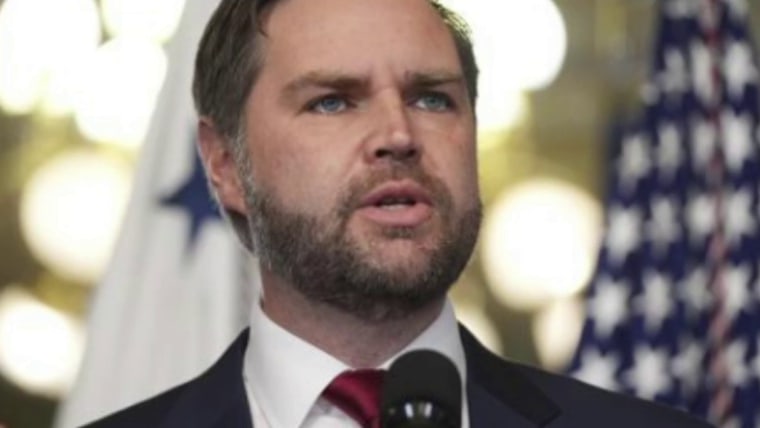
Officials in the state of Washington have agreed to water down a child abuse law after pressure from the Trump administration and local Catholic leaders.
Catholic bishops and the Trump administration had filed lawsuits seeking to overturn a bill signed by Washington Gov. Bob Ferguson, a Democrat and a Catholic, that required faith leaders of all denominations to report allegations of abuse they received in private religious settings — including confession. Though the Catholic Church has a documented history of enabling child sexual abuse, the sponsor of Washington’s bill said the legislation was inspired by reports of abuse within Jehovah’s Witness churches.
Catholic leaders have argued that being forced to report admissions made during a confession amounts to religious discrimination. And after a federal court temporarily blocked the law in July, Washington’s attorney general said late last week that the law will be pared back:
Clergy in Washington will remain mandatory reporters under stipulations filed today by the state Attorney General’s Office and the plaintiffs in lawsuits against the state over Senate Bill 5375. Under the stipulations, however, the state and county prosecutors have agreed — as the court ordered — not to enforce reporting requirements for information clergy learn solely through confession or its equivalent in other faiths. The stipulation now awaits approval by the court.
Most states have so-called clergy-penitent privilege laws that effectively shield religious leaders from having to report child abuse claims they hear in confessional settings. A 2022 report by Boston’s NPR station, WBUR, detailed how this loophole has protected churches from prosecutions and civil lawsuits from victims seeking accountability. Washington had sought to join the few other states without such protections.
In Washington, the governor had denounced the lawsuit filed by Catholic bishops in his state, with Ferguson saying that he was “disappointed my Church is filing a federal lawsuit to protect individuals who abuse kids.”
Jean Hill, executive director of the Washington State Catholic Conference, said in a statement last week that “preventing abuse and upholding the sacred seal of confession are not mutually exclusive — we can and must do both.”
The Dictatorship
Trump administration eyes higher food prices as a result of the immigration crackdown

About a month after Election Day 2024, as Donald Trump prepared to return to the White House, the Republican appeared on “Meet the Press” and explained his victory to NBC News’ Kristen Welker.
“I won on groceries,” he saidadding: “I won an election based on that.” Looking ahead, Trump concludedin reference to food prices for consumers: “We’re going to bring those prices way down.”
After returning to power, the president began boasting about his successes on the issue, assuring Americans that he had lowered the cost of groceries — despite the administration’s own data, which shows grocery costs have gone up this year, not down.
Complicating matters, the president’s own team fears that the problem will soon get worse, as a direct result of the Republican White House’s own agenda. The Washington Post reported:
The Trump administration said that its immigration crackdown is hurting farmers and risking higher food prices for Americans by cutting off agriculture’s labor supply. The Labor Department warned in an obscure document filed with the Federal Register last week that ‘the near total cessation of the inflow of illegal aliens’ is threatening ‘the stability of domestic food production and prices for U.S. consumers.’
According to the Labor Department’s assessment, which was first reported by The American Prospectthe administration needs to act “immediately” to prevent the problem from getting worse.
The Post’s report noted that Agriculture Secretary Brooke Rollins has predicted that, in the aftermath of Trump’s mass deportation agenda, the U.S. farm workforce will become “100% American.” Trump’s Labor Department doesn’t see that as realistic, since Americans lack the will and skills to replace migrant farmworkers.
“The Department concludes that qualified and eligible U.S. workers will not make themselves available in sufficient numbers,” the agency said.
In other words, the president who claimed that he won a second term based on food prices, and who vowed to bring consumer costs at grocery stores “way down,” is already lying about his recent record. But making matters even worse is the fact that his own administration expects the problem to get worse, as food production slows as a result of the White House’s campaign against immigrants, which is likely to reduce supply, pushing prices up.
At that point, Trump will have to choose between competing campaign promises: Will he let immigrants stay and help stabilize food costs, or will he deport these workers and risk the fury of consumers who’ll see prices at their local grocery store climb?
Steve Benen is a producer for “The Rachel Maddow Show,” the editor of MaddowBlog and an BLN political contributor. He’s also the bestselling author of “Ministry of Truth: Democracy, Reality, and the Republicans’ War on the Recent Past.”
-
Uncategorized11 months ago
Bob Good to step down as Freedom Caucus chair this week
-

 Politics8 months ago
Politics8 months agoFormer ‘Squad’ members launching ‘Bowman and Bush’ YouTube show
-

 The Josh Fourrier Show11 months ago
The Josh Fourrier Show11 months agoDOOMSDAY: Trump won, now what?
-

 The Dictatorship8 months ago
The Dictatorship8 months agoPete Hegseth’s tenure at the Pentagon goes from bad to worse
-

 The Dictatorship8 months ago
The Dictatorship8 months agoLuigi Mangione acknowledges public support in first official statement since arrest
-

 Politics8 months ago
Politics8 months agoBlue Light News’s Editorial Director Ryan Hutchins speaks at Blue Light News’s 2025 Governors Summit
-

 Politics11 months ago
Politics11 months agoWhat 7 political experts will be watching at Tuesday’s debate
-

 Politics8 months ago
Politics8 months agoFormer Kentucky AG Daniel Cameron launches Senate bid





